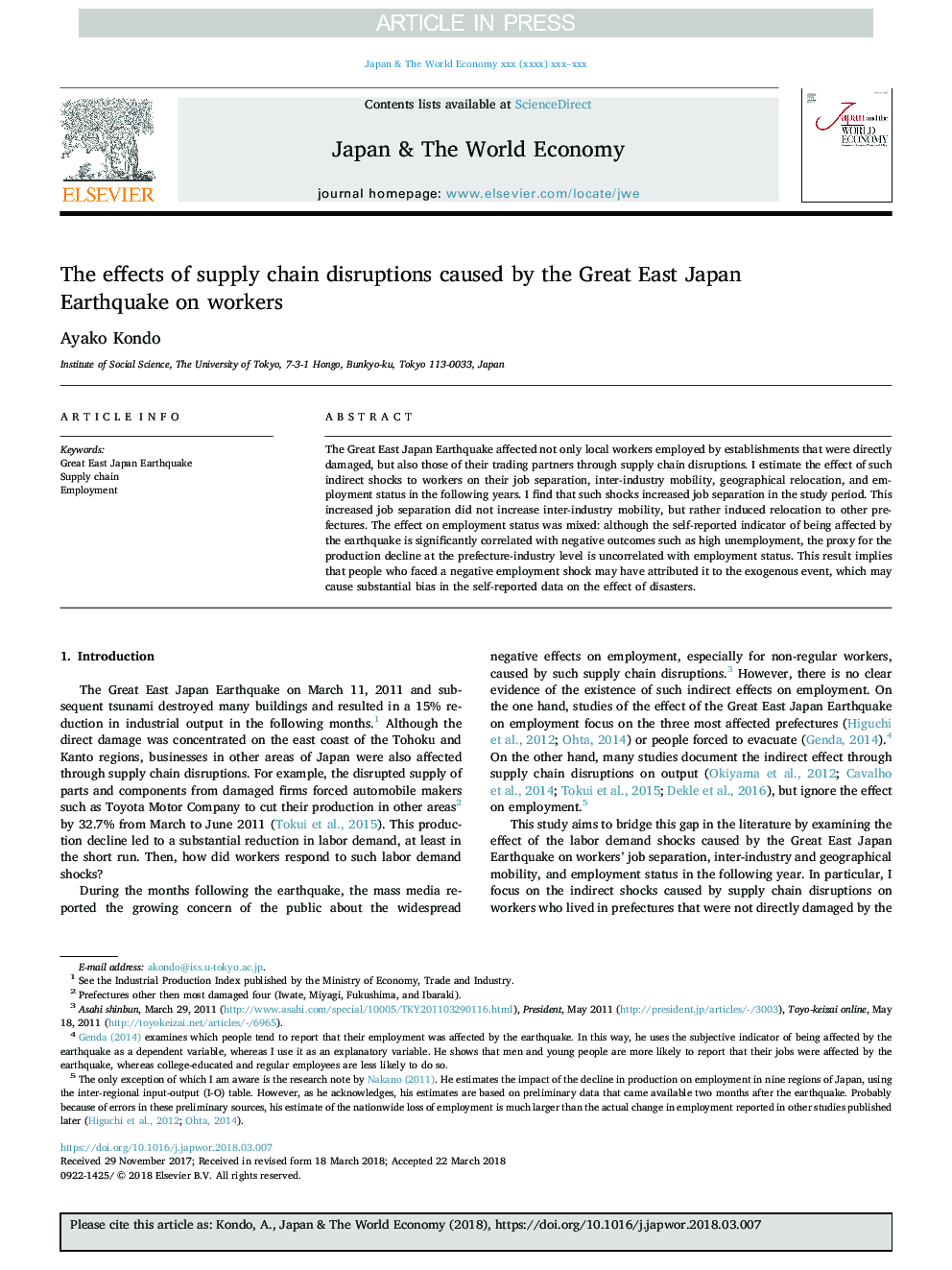| Article ID | Journal | Published Year | Pages | File Type |
|---|---|---|---|---|
| 8948008 | Japan and the World Economy | 2018 | 11 Pages |
Abstract
The Great East Japan Earthquake affected not only local workers employed by establishments that were directly damaged, but also those of their trading partners through supply chain disruptions. I estimate the effect of such indirect shocks to workers on their job separation, inter-industry mobility, geographical relocation, and employment status in the following years. I find that such shocks increased job separation in the study period. This increased job separation did not increase inter-industry mobility, but rather induced relocation to other prefectures. The effect on employment status was mixed: although the self-reported indicator of being affected by the earthquake is significantly correlated with negative outcomes such as high unemployment, the proxy for the production decline at the prefecture-industry level is uncorrelated with employment status. This result implies that people who faced a negative employment shock may have attributed it to the exogenous event, which may cause substantial bias in the self-reported data on the effect of disasters.
Related Topics
Social Sciences and Humanities
Economics, Econometrics and Finance
Economics and Econometrics
Authors
Ayako Kondo,
